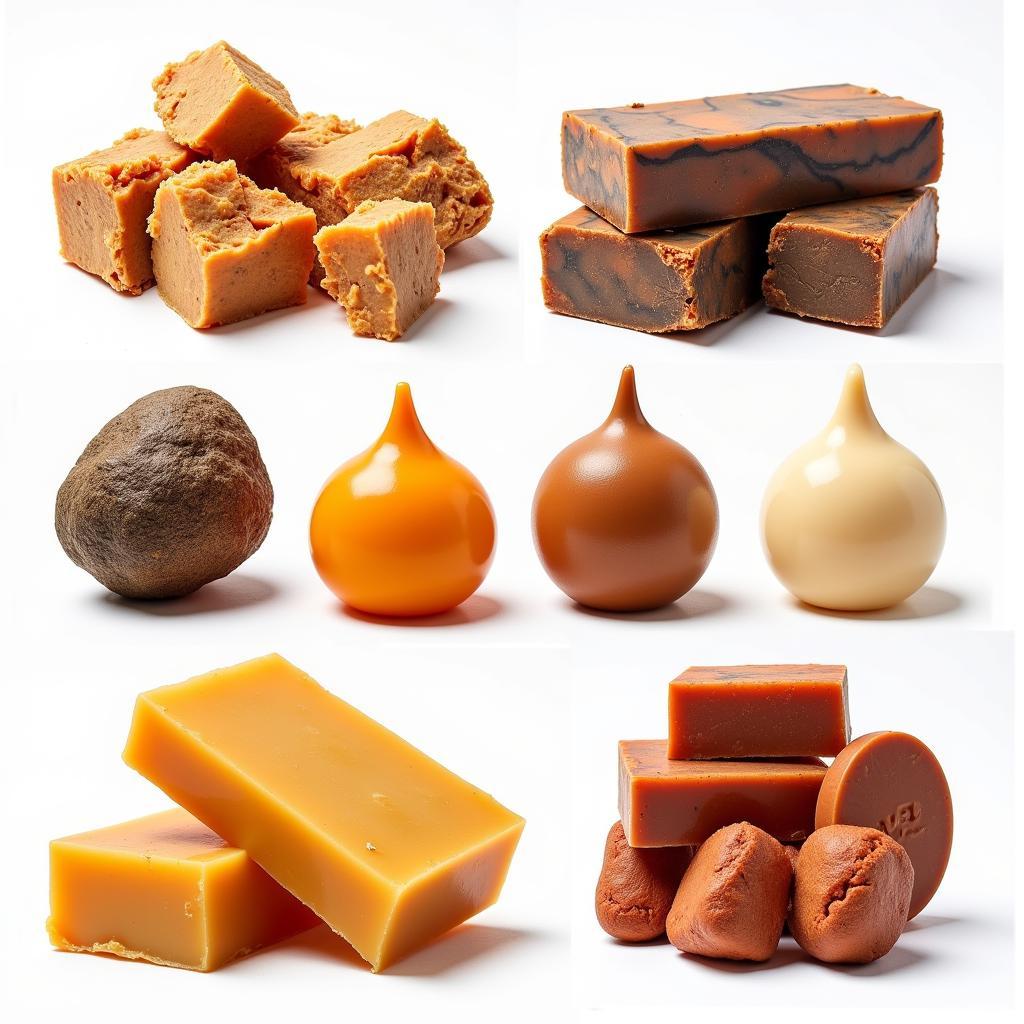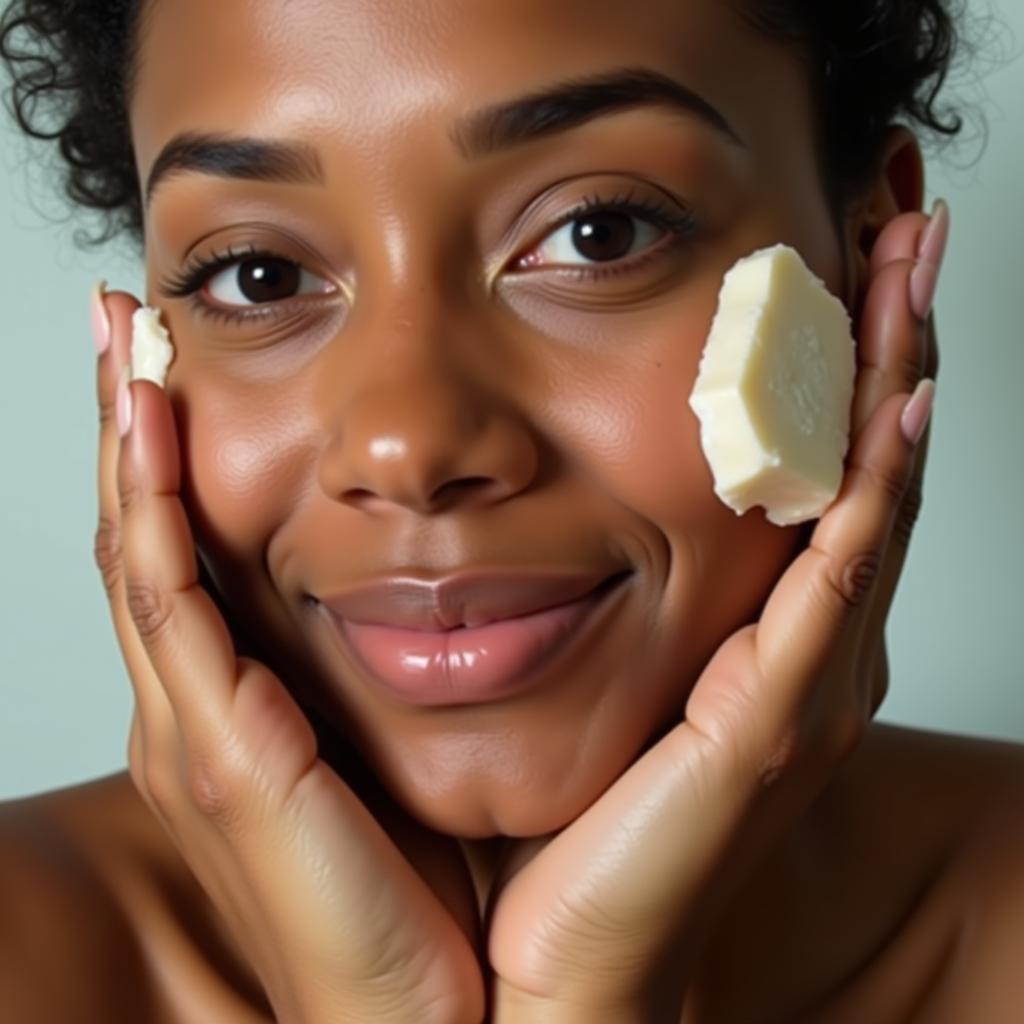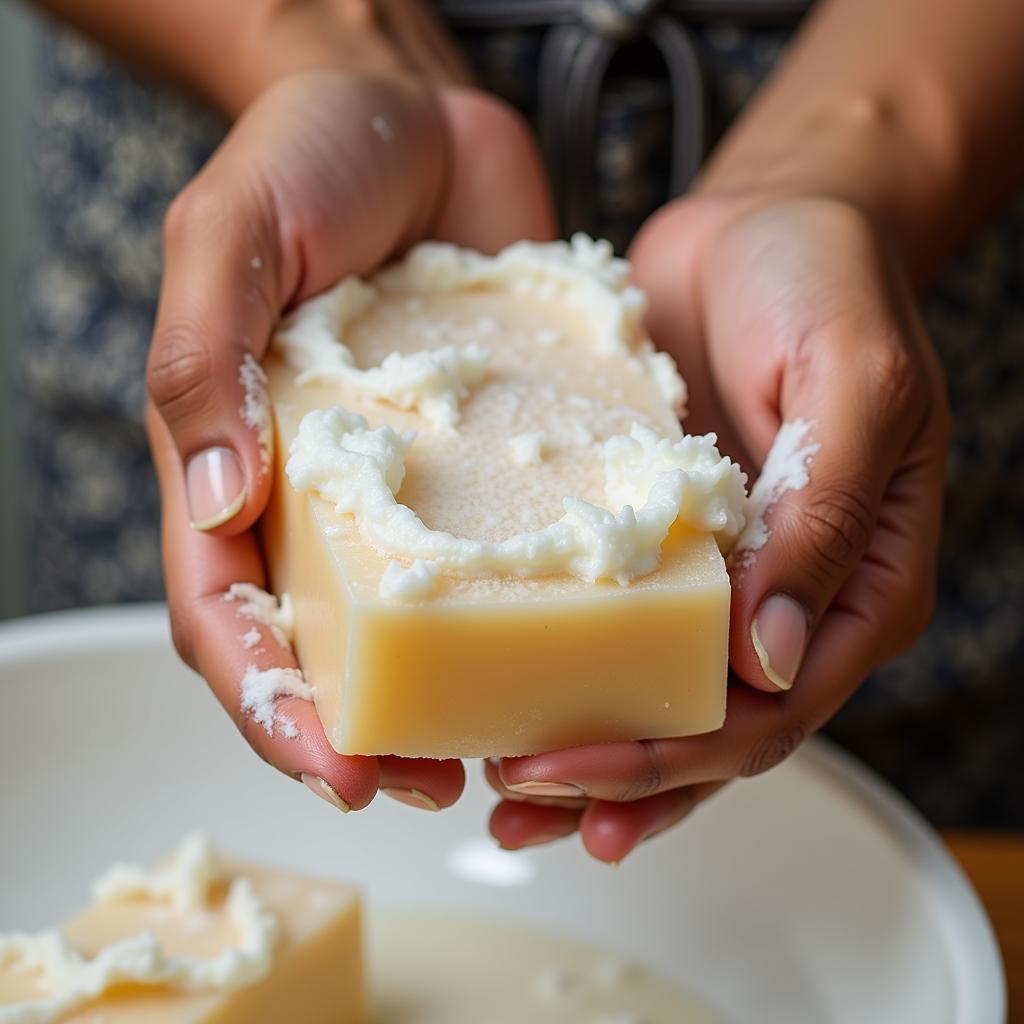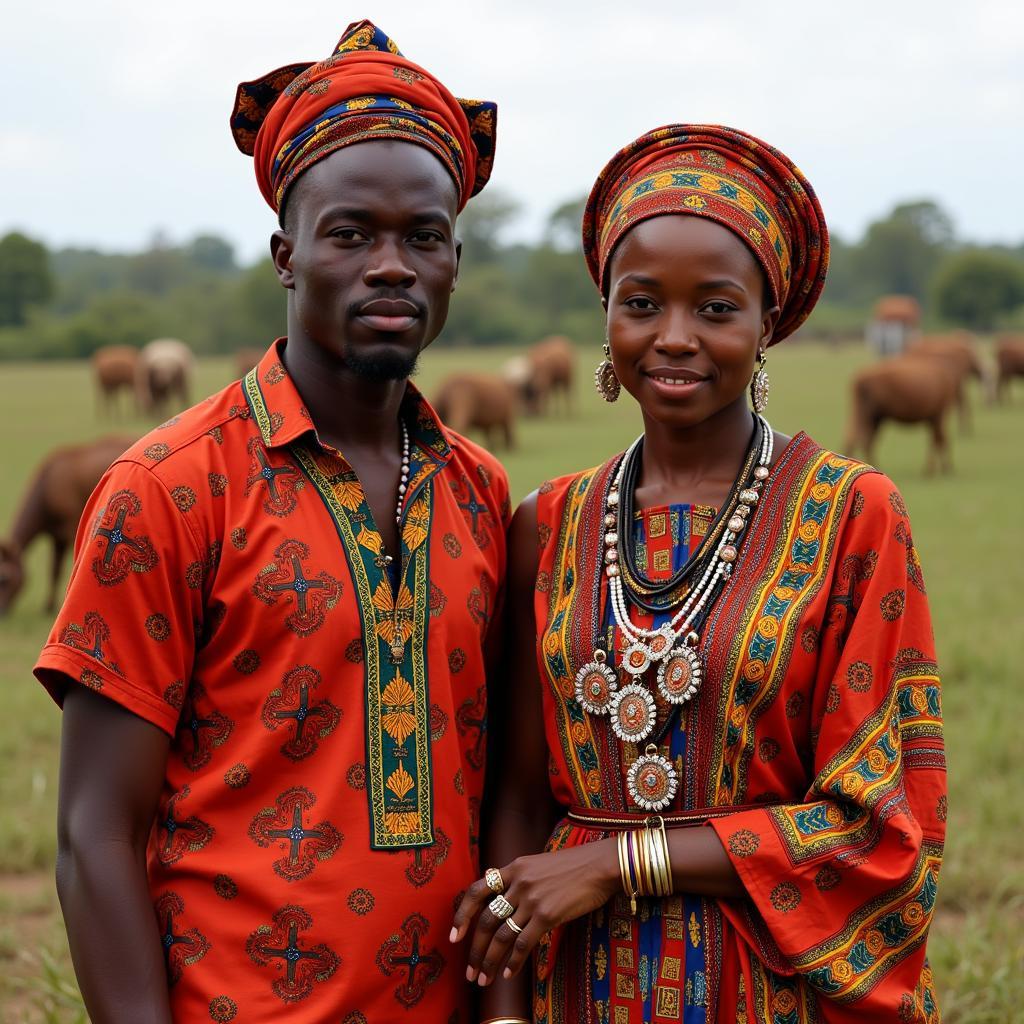A Deep Dive into African Soap: History, Benefits, and More
African Soap, a centuries-old beauty staple, has recently taken the global skincare world by storm. Known for its unique composition and remarkable benefits, this natural wonder is more than just a cleansing agent; it’s a testament to Africa’s rich cultural heritage and knowledge of natural remedies.
 Different types of African black soap on display
Different types of African black soap on display
Unveiling the History of African Soap
The origins of African soap, particularly black soap, can be traced back to West Africa, where communities have been crafting this natural cleanser for generations. While the exact recipe varies by region and family, the core ingredients remain largely unchanged. Shea butter, renowned for its moisturizing properties, forms the base, while ashes from locally sourced plants like plantain, cocoa pods, and palm leaves contribute to its cleansing and exfoliating qualities. This traditional knowledge, passed down through generations, highlights the deep connection between nature and wellness in African cultures.
What Makes African Soap Different?
Unlike commercially produced soaps that often contain harsh chemicals, African soap is celebrated for its natural and sustainable production process. Crafted entirely from plant-based ingredients, it’s biodegradable and gentle on the skin. Furthermore, the absence of artificial fragrances and colors makes it a suitable option for sensitive skin.
Exploring the Benefits of African Soap
 Woman using African black soap on her face as part of her skincare routine
Woman using African black soap on her face as part of her skincare routine
African soap is revered for its versatility and a wide array of benefits, including:
- Deep Cleansing: The soap’s natural ingredients effectively remove dirt, oil, and makeup without stripping the skin of its natural oils.
- Gentle Exfoliation: Its slightly grainy texture gently exfoliates dead skin cells, promoting cell turnover and a brighter complexion.
- Acne Treatment: The soap’s antibacterial and anti-inflammatory properties can help soothe and heal acne-prone skin.
- Eczema and Psoriasis Relief: Its moisturizing and anti-inflammatory qualities may provide relief from the dryness and irritation associated with these conditions.
- Fading Hyperpigmentation: Regular use may help to fade dark spots and hyperpigmentation, promoting a more even skin tone.
“As a dermatologist, I often recommend African black soap to my patients with sensitive or problematic skin. Its natural ingredients and gentle cleansing action make it a valuable addition to any skincare routine.” – Dr. Abena Osei, Dermatologist
Choosing the Right African Soap for You
While the term “African soap” is often used interchangeably with “black soap,” it’s essential to note that variations exist.
- Black Soap: This variety, typically dark brown or black, is known for its robust cleansing and exfoliating properties.
- Yellow Soap: Often made with palm oil and turmeric, yellow soap is gentler and moisturizing, making it suitable for sensitive skin.
When choosing an African soap, it’s crucial to opt for authentic products from reputable sources. Look for soaps that list natural ingredients and avoid those with added chemicals, fragrances, or artificial colors.
Incorporating African Soap into Your Skincare Routine
 Hands lathering a bar of African black soap, creating a rich, creamy foam
Hands lathering a bar of African black soap, creating a rich, creamy foam
To experience the full benefits of African soap, follow these simple steps:
- Wet your skin: Use lukewarm water to dampen your face or body.
- Lather the soap: Gently rub the soap between your hands or a washcloth to create a rich lather.
- Apply to skin: Massage the lather onto your skin using circular motions, avoiding the delicate eye area.
- Rinse thoroughly: Use lukewarm water to remove all traces of soap.
- Pat dry: Gently pat your skin dry with a soft towel.
- Moisturize: Follow up with your favorite moisturizer to lock in hydration.
Frequency: Due to its exfoliating properties, it’s best to start with using African soap 2-3 times a week and gradually increase the frequency as your skin adjusts.
“I was skeptical at first, but after trying African black soap, I’m hooked! My skin feels cleaner, smoother, and my acne has significantly reduced. It’s a game-changer!” – Adesola, African soap enthusiast.
Conclusion
African soap is more than just a cleanser; it’s a cultural treasure that embodies the wisdom of traditional African skincare practices. Its natural ingredients, gentle cleansing action, and numerous benefits make it a valuable addition to any skincare routine. So why not embark on a journey to discover the transformative power of this ancient beauty secret?
FAQ
1. Is African soap suitable for all skin types?
While generally safe, it’s essential to test a small area first, especially if you have sensitive skin.
2. Can I use African soap on my hair?
Yes, African soap can be used as a shampoo, particularly for those with oily or itchy scalps.
3. Where can I buy authentic African soap?
Authentic African soap can be found at African black soap whole foods, African black soap kopen or African black soap amazon.
4. How long does African soap last?
A bar of African soap can last for several weeks, depending on usage and storage conditions.
5. Can African soap lighten my skin tone?
African soap is not a skin-bleaching agent. However, it may help to fade hyperpigmentation and promote a more even skin tone.
Exploring Further
- Discover the African black soap benefits for skin in detail.
- Learn about the appropriate African black soap amount to use for different purposes.
Need assistance?
Contact us at +255768904061, email us at kaka.mag@gmail.com, or visit us at Mbarali DC Mawindi, Kangaga, Tanzania. Our customer service team is available 24/7.


